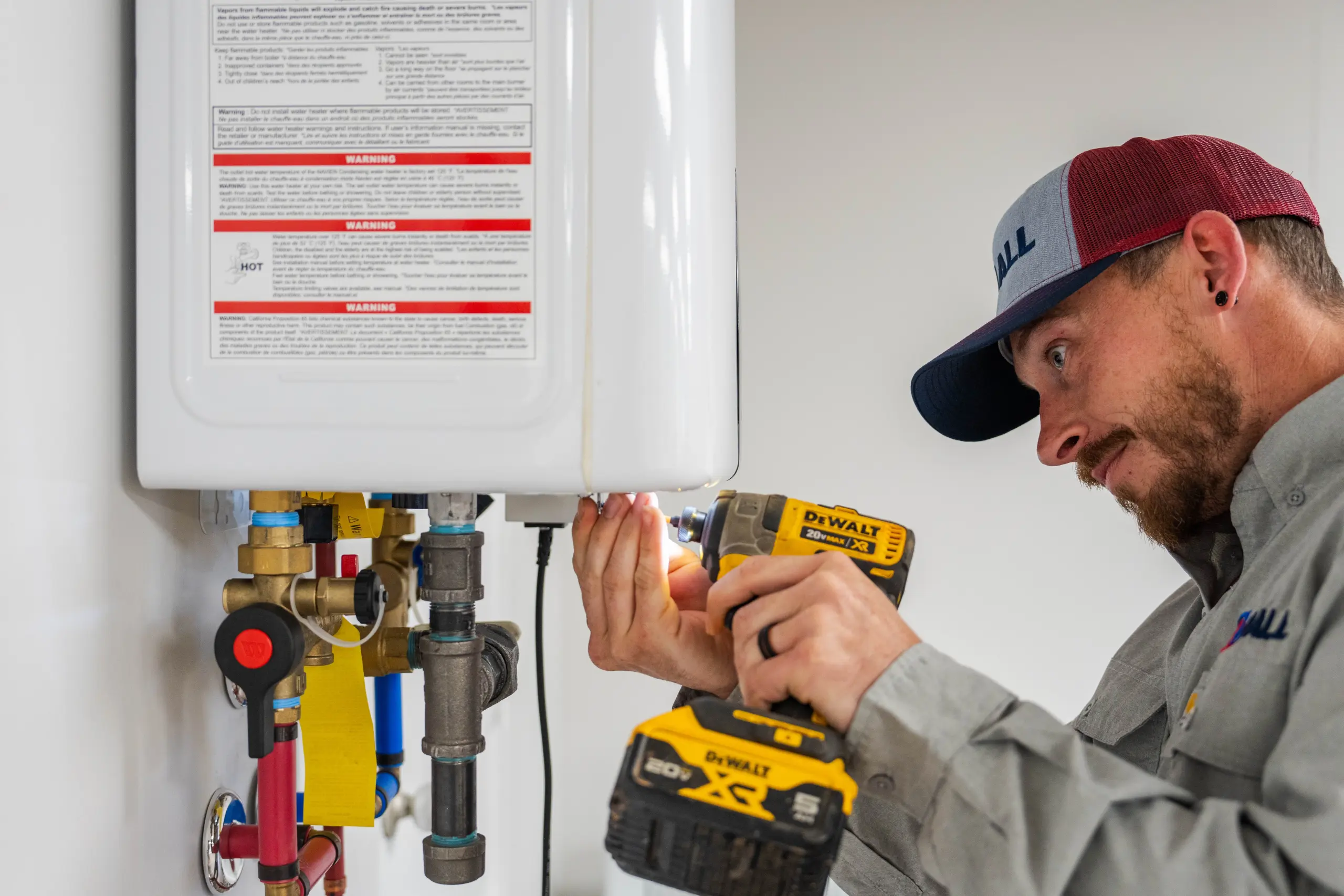Electric vs. Gas Water Heaters
You may only think about the type of water heater your home has when yours is in need of repair or replacement, but the kind you have can make a dramatic impact on your ability to access hot water. The two most common types of water heaters are electric and gas. Let’s take a look at the pros and cons of each so you can determine which is the best fit for your home.
Electric Water Heaters: You Pay For What You Get
Conventional electric water heaters use a tank that heats water through high-voltage electric heating elements inserted into the water. While these water heaters are safe, easy to install and typically less expensive, they can suffer from performance issues. If your power goes out, you’ll be stuck shivering as you shower. Even if your electricity is running, these heaters require more time to get your water’s temperature higher and can be slow to recover and suffer from “heat fade” under constant use.
So, while they may be less expensive to purchase and install, electric water heaters may not be your most reliable option for consistently heating your water or long-term value.
Gas Water Heaters: More Hot Water When You Need It
Gas water heaters utilize gas burners to heat water. This means that gas water heaters can still work during power outages, assuming you have water pressure. Additionally, these options have much higher heating capabilities compared to electric versions, meaning they can produce more hot water and do so much faster.
If you have a larger family, gas water heaters are beneficial as they provide constant hot water despite their higher installation costs.
A Third Option Emerges: Going Tankless
As we discussed, gas and electric water heaters are the most common options available for your home, but tankless water heaters are becoming more popular.
Tankless heaters do not store water. When a faucet is turned on, cold water flows through it and is heated by gas burners that look much like a small boiler. This allows homeowners like you to access hot water on demand throughout the day.
In many cases, these new tankless water heaters are required in new construction. It’s easy to see why, as they offer greater efficiency and long-term savings while taking up less space than their tank counterparts.
In fact, 40-gallon, propane-fueled tankless water heaters:
And when you factor in the local rebates you get in North Carolina and Virginia for installing tankless water heaters, the advantages of this option are clear.
Hall Propane: Your Tankless Water Heater Partner
Hall Propane is your local source for tankless water heater installation, service and maintenance. Our dedicated team has the experience and expertise to keep your system running well and efficiently throughout the year. Contact us today to find the best solution for your home and family.



